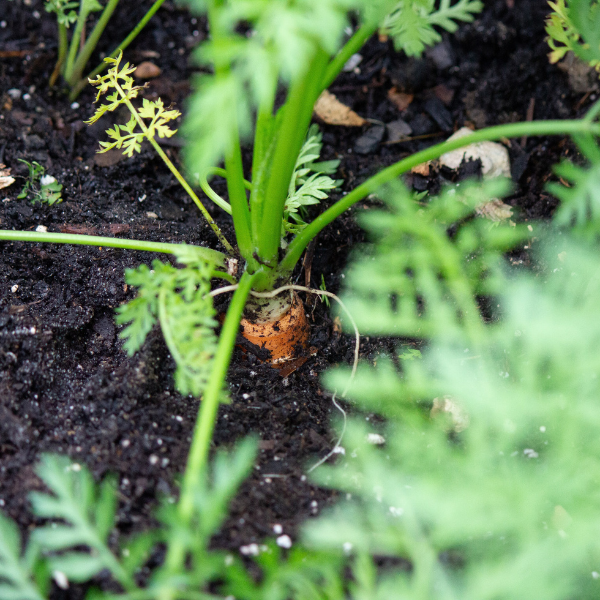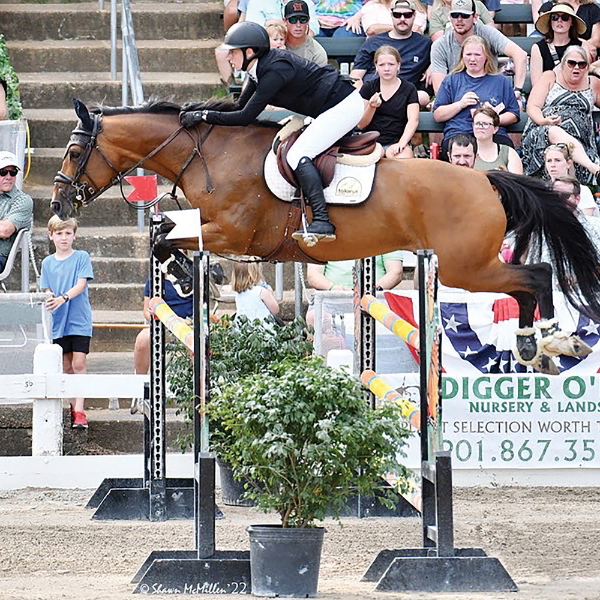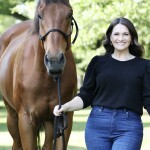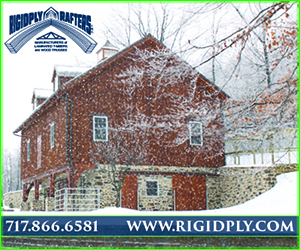Germantown, Tenn., has long been known as a quaint, small city right outside of Memphis. Anyone who has grown up or lives in the area immediately associates Germantown with horses, especially during the month of June. For 74 years horses have made their way to the heart of Germantown, following the painted horse shoes on Poplar Avenue that lead to the Germantown Charity Show Grounds.
Upwards of 700 horses attend the multi-breed show each year. Along with the horses come trainers, riders, grooms, feeders and a slew of barn friends, family members and a huge crowd of spectators from the surrounding community.
The Germantown Charity Horse Show is one of the largest multi-breed shows in the nation. It earned its designation as a US Equestrian Federation Heritage Competition, one of only 31 Shows across the nation to earn the designation. According to the US Equestrian Federation’s website, “the designation of a USEF Heritage Competition is reserved for competitions that have been established for a long period of time and have made substantial contributions toward the development and promotion of the sport, both within the broader community, by achieving, maintaining and promoting the equestrian ideals of sportsmanship and competition.”
GCHS was established by a group of longtime horse friends from the Germantown community who were WWII Veterans. Horses have been at the heart of the show since the beginning and what became a way for friends to gather and celebrate their horses turned into a nationally recognized competition for a variety of breeds and disciplines where Equestrian Olympians such as Melanie Smith Taylor, Mac Cone, Laura Kraut, and Margie Engle either competed in their first classes on their ponies, or came to compete in The $25,000 Grand Prix of Germantown.
Every year GCHS celebrates the horse with divisions for Hunter/Jumpers, Carriage Driving horses and ponies, Tennessee Walking Horses, Racking Horses, American Saddlebreds, Gypsy Vanners, Paso Finos and more. As exhibitors and competitors come together during a week of competition for a diversity of breeds and disciplines, the economic impact the show has on the community helps fuel Germantown’s economy and charitable contributions to Non-Profit Organizations.
Kindred Place has been the charity GCHS has supported and sponsored for the last 23 years. Kindred Place began in 1984 to help prevent child abuse, and its mission is to break the cycle of child abuse and neglect by replacing abusive and violent behavior with effective parenting skills. Since 1999 GCHS has raised over $700,000 for the charity. Aside from the charitable contributions GCHS focuses on raising for Kindred Place, GCHS brings about $1 million into the city each year.
That revenue directly supports the show grounds year round. However, show managers, ground’s crew men and women, judges, photographers, a variety of vendors from retail clothing and gift stores, restaurants, food trucks, equestrian gear and saddlery products, small businesses and hotels are all positively impacted throughout the week of the show. Exhibitors have come from as many as 27 states for the weeklong competition and spectators fill the arena for six straight nights reserving box seats and nightly tickets. College and professional sports have long been known to have positive impacts on communities’ economy, but at times, people outside of the horse industry do not understand nor realize how much horses impact the economy.
According to the American Horse Council Foundation’s National Economic Impact Study, “the United States horse industry contributes significantly to the American economy. The horse industry contributes approximately $50 billion in direct economic impact to the U.S. economy, and has a direct employment impact of 988,394 jobs. Additionally, the industry itself contributes $38 billion in direct wages, salaries, and benefits.
From those direct effects, the horse industry’s contribution ripples out into other sectors of the economy. Adding these ripple effects results in an estimate of the total contribution of the horse industry to the U.S. economy of $122 billion and a total employment impact of 1.7 million jobs.”
There are an estimated 7.2 million horses in the U.S. Their breakdown of use ranges from 3.1 M for recreation, 1.2 M for performance and show, 1.2 M for racing, and 537K for working. Aside from the direct expenses tied to the care of horses like nutrition, health care, and overall maintenance needs, where to house horses is a huge factor for the U.S. economy. The American Horse Council Foundation estimates that 32 million acres of land are owned specifically for horses and another 49 million acres are leased for horse-related use generating a large economic impact of real estate activity.
The state of Kentucky has maximized the equine industry’s economic impact better than any state in the nation. Known as the “Horse Capital of the World,” Kentucky’s tourism efforts are directly tied to the horse and specifically Thoroughbred Racing. The Horse is branded on all Kentucky Tourism marketing efforts and it has embraced it as driving its economic development.
The City of Germantown also focuses on driving spectators to GCHS each year. Flags, horse statues, art, and digital social media all promote the show year round, and as it gets closer to June the announcement is made that “The Horses are Coming.” Whether it is a first time exhibitor traveling from out of state, a third or fourth generation GCHS member who has never missed a show, a resident who lives next door and can hear the PC each night, or a first time spectator, GCHS leaves a lasting impression on every horse and person it touches.
The view of tents rising in front of the show grounds, the music played while the Tennessee Walking Horses show at a Running Walk, the flashing sign that displays “Rack On” as the Racking Horses race around the arena, the smell of funnel cakes and cotton candy filling the air, and the eruption from the crowd as a Grand Prix horse and rider go clear and beat its competitor by less than a second are imprinted in hearts. These memories keep exhibitors and spectators returning to Germantown the first full week of June year after year. The Germantown Charity Horse Show gives so much back to the community, to Kindred Spirit, young pony riders, future pony riders, first time Grand Prix riders, and the families and generations who keep it going year after year. The economic impact and legacy it has instilled in Germantown and the neighboring communities will forever be felt in the Mid-South. The Germantown Charity Horse Show will take place June 6-10. Nightly general admission tickets can be purchased at the gate each night. Tuesday is open to the public and Wednesday- Saturday tickets are $5.00 per person and children under 3 are free. More information on GCHS can be found on their website: www.gchs.org.











